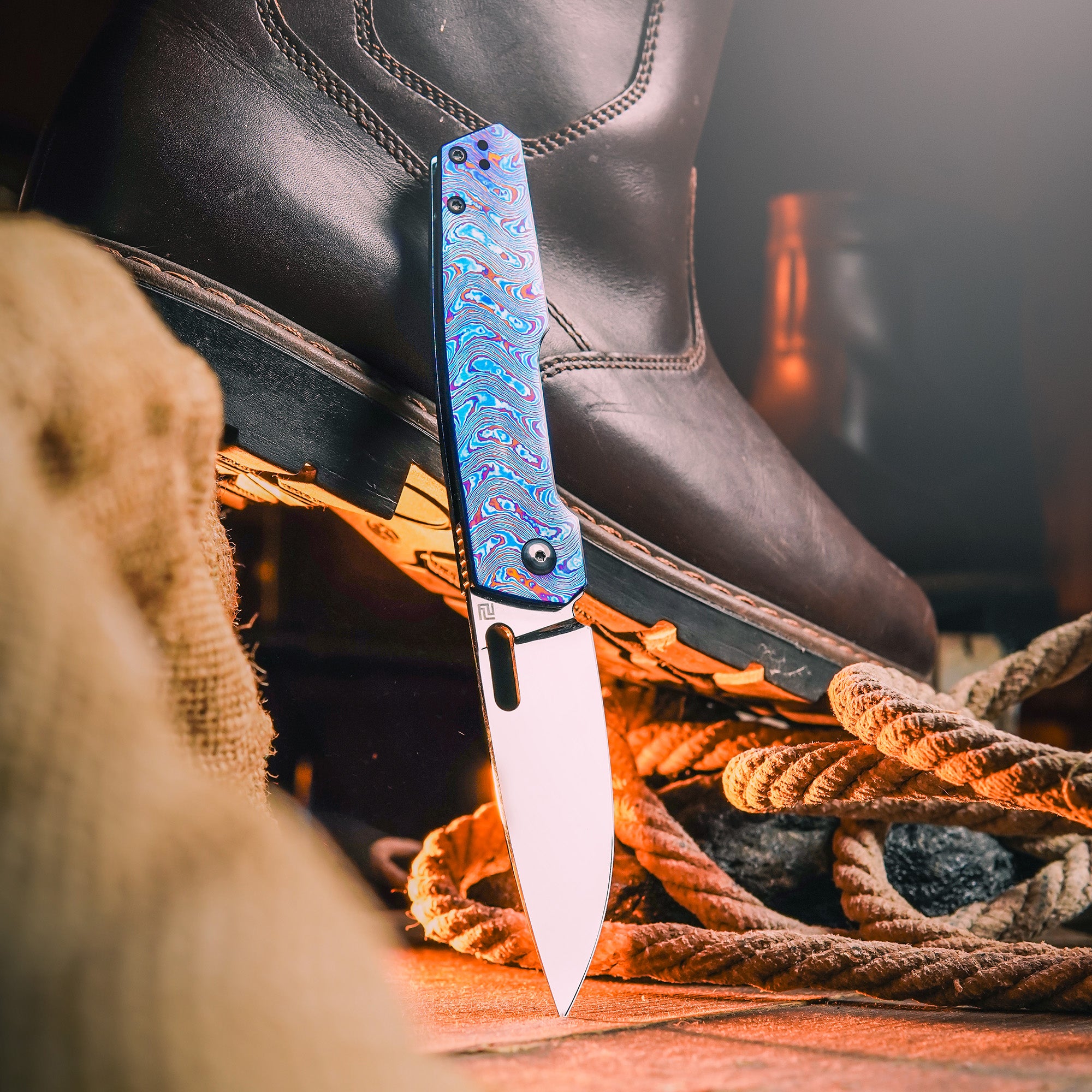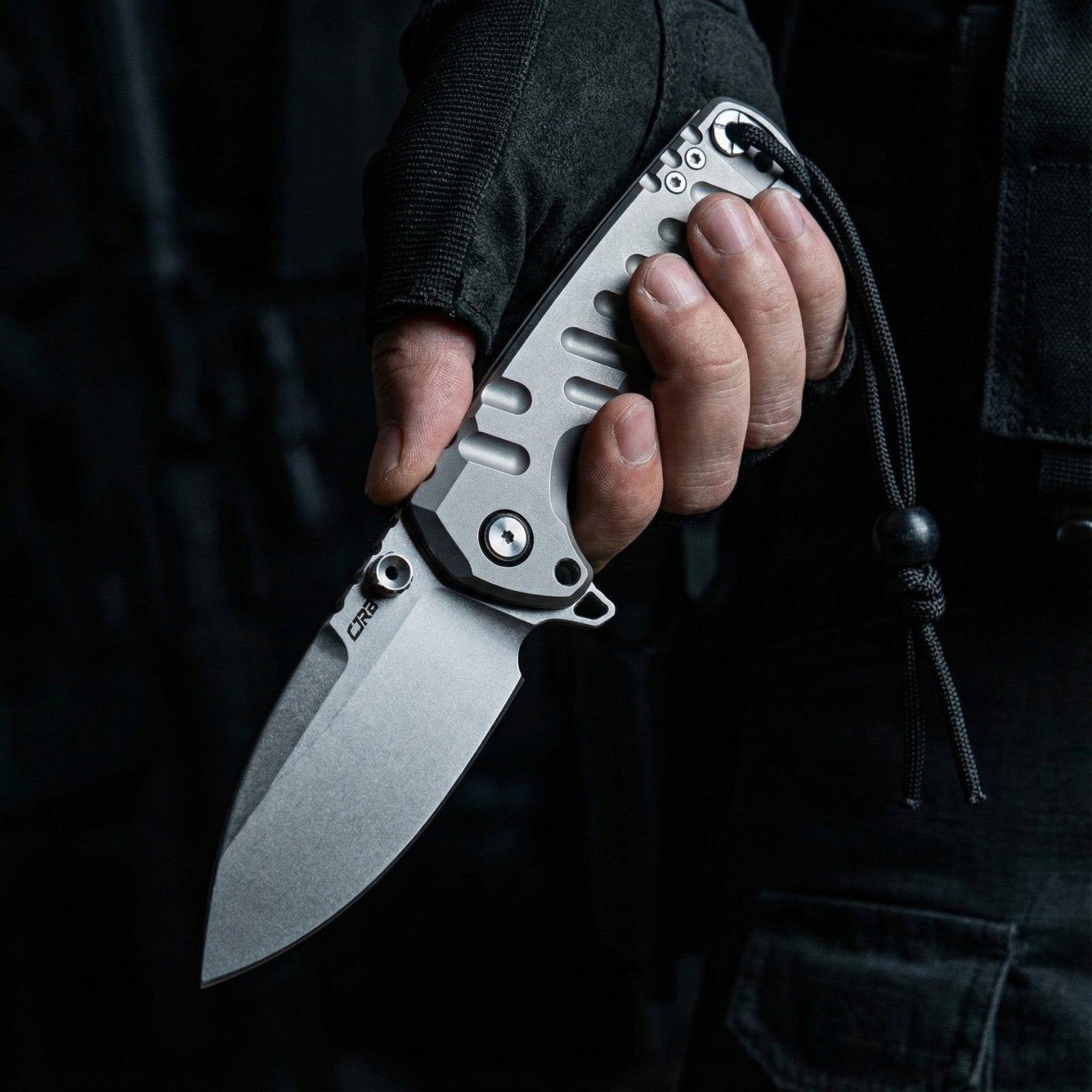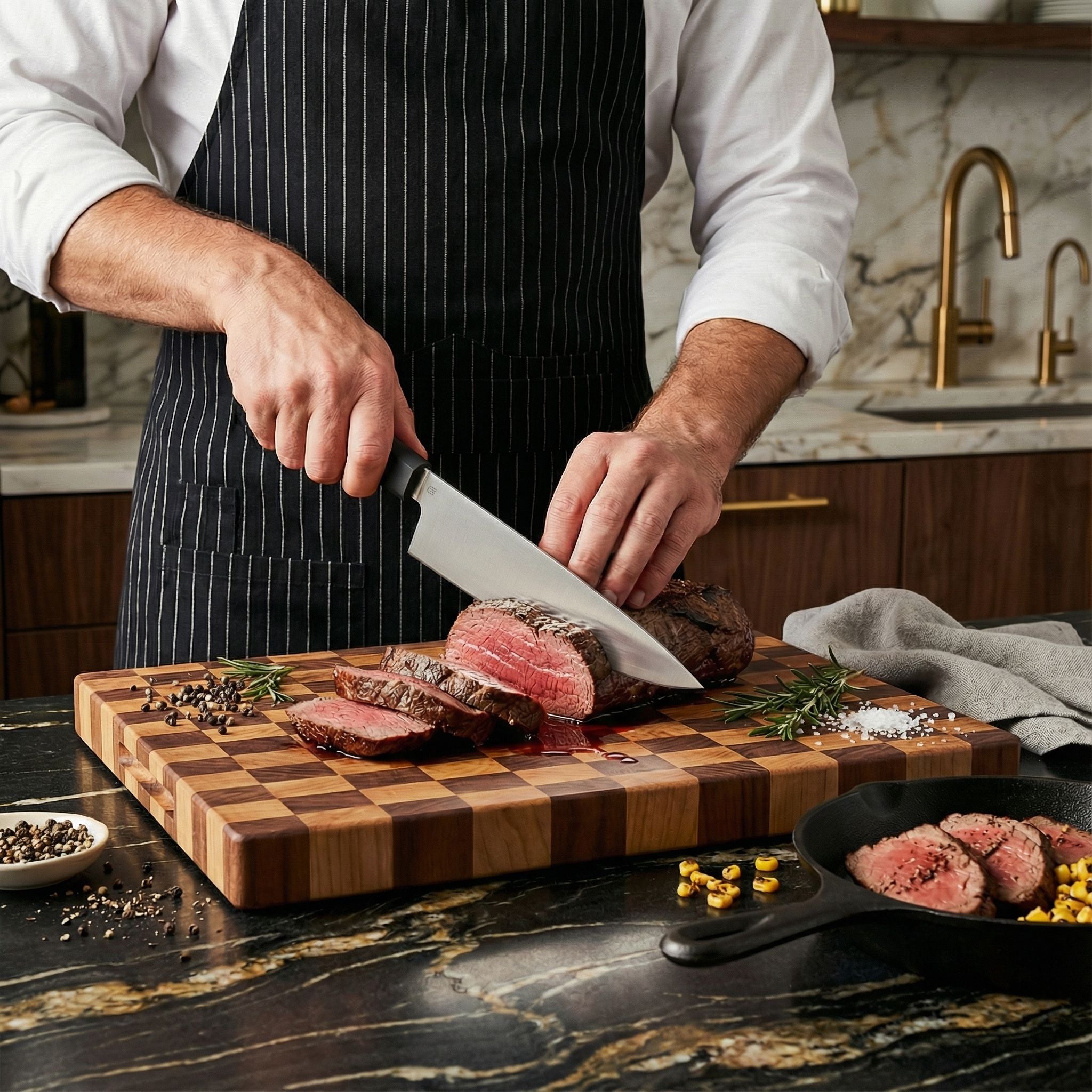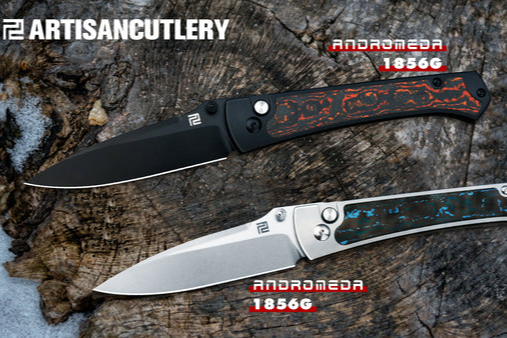Are you in the market for a new cutting tool but can't decide between a folding knife and a fixed blade? You're not alone! These two types of knives each have their own unique advantages and drawbacks, which can make it challenging to choose the right one for you.
In this blog, we'll guide you through the key differences between folding knives and fixed blades, discuss their various types, and share important factors to consider when making your decision. Plus, we'll offer some handy tips to help you find the perfect knife for your needs. So, let's dive in and explore the world of folding knives and fixed blades together, shall we?
A Closer Look at Folding Knives
Pocket knives, often called folding knives, are handy cutting tools with a blade that tucks neatly into the handle when you're not using it. Their compact size and easy portability make them a go-to option for everyday tasks like opening packages, snipping cords, or even providing self-defense when needed. So why not slip one into your pocket and be ready for whatever life throws your way?

Exploring Different Types of Folding Knives
There's a wide variety of folding knives, each with unique designs and mechanisms. Some of the most popular types include:
- a) Slip Joint Knives: These knives have a spring mechanism that holds the blade open but allows it to close with moderate pressure. They're favored for their simplicity and affordability.
- b) Lockback Knives: These knives feature a locking mechanism that secures the blade in place when open. To close the knife, you must release the lock by pressing a lever or button on the handle. Lockback knives provide increased safety and stability during use.
- c) Liner Lock Knives: In these knives, a thin metal liner inside the handle locks the blade in place when open. Pressing the liner to one side releases the lock, allowing the knife to close. Liner lock knives are appreciated for their ease of use and one-handed operation.
- d) Assisted Opening Knives: Equipped with a spring mechanism, these knives quickly deploy the blade when the user applies pressure to a thumb stud or flipper. They enable rapid deployment, making them popular among first responders and law enforcement personnel.
Factors to Consider When Buying a Folding Knife
When deciding between folding knives and fixed blades, consider the following factors:
- a) Purpose: Identify the primary function of the knife. Folding knives excel at everyday tasks and general utility, while fixed blades are better suited for demanding tasks like hunting, camping, or survival situations.
- b) Size and Weight: Folding knives are generally smaller and lighter than fixed blades, making them easier to carry and handle. However, if you need a larger, sturdier knife for heavy-duty tasks, a fixed blade may be the better option.
- c) Legal Restrictions: Some areas have strict regulations on carrying knives, particularly those with longer blades or specific locking mechanisms. Research your local laws before making a decision.
- d) Maintenance: Folding knives typically require more maintenance due to their moving parts and mechanisms. If you prefer a low-maintenance option, a fixed blade could be more suitable.
Tips for Choosing the Best Folding Knife
- a) Quality Materials: Opt for folding knives made from high-quality materials like stainless steel or high-carbon steel for the blade, and durable handle materials such as G-10, aluminum, or titanium.
- b) Ergonomic Design: Select a folding knife with a comfortable and secure grip. A well-designed handle ensures better control and reduces the risk of accidents.
- c) Blade Shape: Consider the blade shape that best suits your needs. Popular shapes include drop point, tanto, and spear point, each with its advantages and disadvantages depending on the task.
- d) Price: Establish a budget and stick to it. Keep in mind that a higher price doesn't always guarantee better quality, but extremely cheap knives may lack durability and performance. Look for a folding knife that offers the best value within your budget.
- e) Brand Reputation: Research reputable brands known for producing high-quality folding knives. Well-established brands often provide better customer support and warranties, ensuring a more satisfying long-term investment.
More infos from: Folding Knives: A Guide to Choosing the Right One for You.

Conclusion
In the end, deciding between folding knives and fixed blades comes down to your unique requirements, personal preferences, and how you plan to use the knife. Folding knives, with their portability, adaptability, and handiness, are perfect for everyday carry and a wide range of utility tasks. Meanwhile, fixed blades boast superior stability and sturdiness, making them the go-to option for more demanding tasks and outdoor adventures.
As you mull over the prospect of a folding knife, don't forget to factor in the diverse types, aspects to consider when buying, and pointers for selecting the finest knife. By thoroughly assessing the pros and cons and tackling the obstacles linked to each alternative, you'll be better equipped to make a well-informed choice that caters to your needs and expectations.
Bear in mind that your decision will have a lasting impact beyond the knife itself, influencing your overall experience and satisfaction with the tool. So, why not invest some time weighing all the factors to find the knife that's the perfect fit for you?










Leave a comment
All comments are moderated before being published.
This site is protected by hCaptcha and the hCaptcha Privacy Policy and Terms of Service apply.